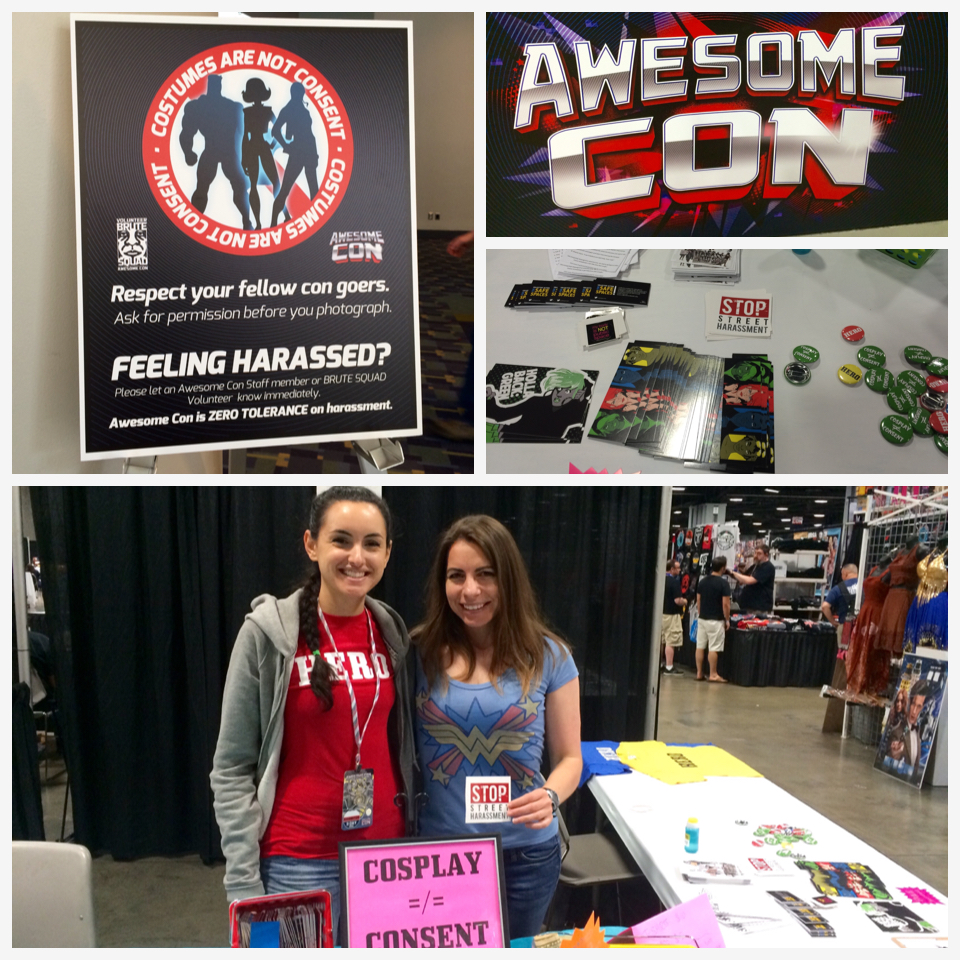 On Friday, I co-presented with Collective Action for Safe Spaces (CASS) at the AAUW/NASPA National Conference for College Women Student Leaders at the University of Maryland College Park. We talked to 25 college women from across the nation about street harassment and how they can use activism, teaching, and writing to make concrete change and sway opinions.
On Friday, I co-presented with Collective Action for Safe Spaces (CASS) at the AAUW/NASPA National Conference for College Women Student Leaders at the University of Maryland College Park. We talked to 25 college women from across the nation about street harassment and how they can use activism, teaching, and writing to make concrete change and sway opinions.
There was a portion of time for people to share stories and it ran over because so many people wanted to share recent experiences they’d had on and around campus. The most heartbreaking story came from a transwoman of color who was followed by men to her campus and they would not leave until she and several other students came out to confront them. She said she felt lucky she had back up. Her concern for her safety is very justified and she talked about thinking regularly about transwomen who are attacked and killed in public spaces simply for being their authentic self.
 On Saturday and Sunday, I assisted Feminist Public Works/Geeks for Consent and CASS in tabling at Awesome Con in Washington, DC. Those organizations have done a lot of work to help the conference organizers address harassment (e.g. training volunteers to assist those who have been harassed, posting signs about consent and no harassment, etc). I spoke with many people who said they felt there was a better culture of respect this year and that they felt safe etc.
On Saturday and Sunday, I assisted Feminist Public Works/Geeks for Consent and CASS in tabling at Awesome Con in Washington, DC. Those organizations have done a lot of work to help the conference organizers address harassment (e.g. training volunteers to assist those who have been harassed, posting signs about consent and no harassment, etc). I spoke with many people who said they felt there was a better culture of respect this year and that they felt safe etc.
On Saturday as we were wrapping up, a man stopped by to say he had stopped 8 people from taking photos of others without first seeking consent to do so.
Today, two people who stood out to me the most were a mom who stopped by with her 13ish-year-old son and took lots of materials about consent and told him he should talk to his friends about consent (yes!) and the mom who stopped by with her three daughters who looked like they were all under 12. She also grabbed a lot of materials and said to them, “You haven’t been harassed yet but you will be soon enough.” It’s good she’s thinking about how to help them when the inevitable happens… but how said that it is inevitable.
All told, both events were a great opportunity to talk one-on-one about street harassment with people from all over the country and learn about their experiences and offer them support.


